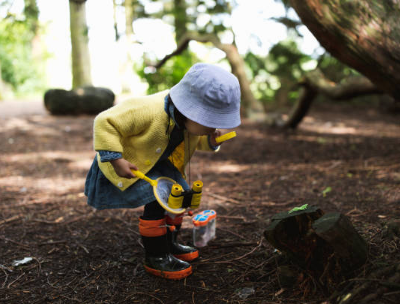After the age of 3, your child wants to walk on his or her own two feet at least part of the time. When he is almost 4 years old, he will want to be more flexible as he will grow up to be an explorer for family outings. Even if you’re happy to get rid of your gear, you’ll want to gain as much knowledge as possible to protect your little adventurer.

Teach Your Child
So whether you’re away from home for camping or fishing, or hiking in a local park, you and your kids should know what to do if they or you get lost or separated. You should also know a few things about conserving energy and protecting your skin. What kids learn on these outings should prepare them for outdoor fun and adventurous life.
9 Tips to Keep Young Children Safe Outdoors
Here are nine simple precautions that will help keep your outdoor travel safe.
Sun Protection Rules.Even on cloudy days, the sun burns. Winter hikes can hurt the face and other bare skin just as badly as summer hikes. Be sure to apply a broad-spectrum sunscreen with an SPF of 15 to 30 or higher before you go and reapply after two hours. Have children over 3 try to do it on their own to start learning the Xi Xi, but make sure the adult checks to see if it’s fully covered.
Wear a Hat. Hats are more than just decoration. In winter, our bare heads lose a lot of body heat, and in summer, we get heat in this way. This rule is more applicable to children because their head size is relatively large compared to their body size. A scalp sunburn can be painful and dangerous, and it’s easier to avoid being too cold (hypothermia) or too hot (hyperthermia) when the head is covered.
Drink Wisely. Bring plenty of water and let your child drink plenty of water. You will avoid the fatigue and dehydration that comes with drinking too little water. Slow, irritable children often feel thirsty. Once they are three years old, they should carry a quart of water in their backpack and drink it regularly.
Snack Trivia. Children need energy at least every two hours. Even if you plan to go out for only a short time, bring food with you in case of unexpected delays. It’s a good Xi to develop.

Bagging. What’s black, plastic, with a hole in the bottom? garbage bag shelter. Do not leave the house without putting it in your child’s backpack. If she gets lost and has to stay outside, this humble item can protect her from water and cold. Show her how the garbage bag makes a magic cloak, which can only be used if she’s wet and cold or lost. It’s not fiction for the sake of fiction. This is your child’s emergency refuge.
Here’s a four-step process for teaching preschoolers:
Step 1: After taking off the hat, place the open end of the bag over your head, just like you would with a shirt or sweater.
Step 2: Locate the hole at the bottom and stick your head in.
Step 3: Put on your hat.
Step 4: Curl up underneath and tuck the bag over your body.
Whistle. Hang the whistle on a long rope around your child’s neck and tuck it into your child’s clothes so that you don’t get tripped over anything. Teach him to blow it off only when he gets lost. Again, emphasize to your child (don’t scare him) that this is not a game. Develop a signal (e.g., one short whistle, one long whistle) to summon everyone to the designated meeting area. Don’t expect children under the age of 5 to remember that place, but go through a routine; eventually they will remember it and develop good Xi at the same time.
Dress for Success. If you are at risk of being bitten by small animals, scratches from bushes and poison ivy, wear long pants and high boots. At the end of an outing in the woods or fields, use insect repellent and check your clothes for ticks.
Group Leaders. Let your child be a leader in hiking. She will be proud and you will be able to follow her. Teach your leader to constantly check her followers to make sure everyone is together.
Hug a Tree. It’s not philosophy or ecology – it’s security. Teach children to hug a tree when they get lost. Tell them to find the loneliest tree around them and go and hug it. And keep embracing it. Children are more likely to be found when they stay where they are.
